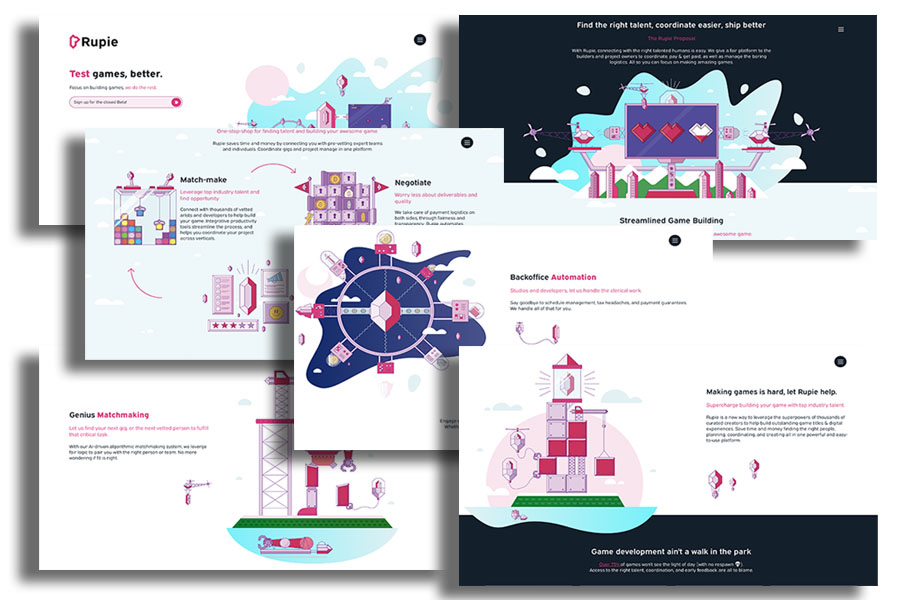A Bend startup’s job site for gamers tries to tackle overwork in this fast-growing tech sector.
Oregon native Austin Anderson wanted to go into video game development during college but was put off by the lack of a clear career path into the profession. Long work hours, which are notorious in the gaming sector, also dissuaded him.
Anderson switched to computer science and software development, and moved to San Francisco to work in the tech sector.
But the urge to work in gaming stayed with him, and after moving to Bend with his wife a few years ago, he considered opening a gaming studio. “But I learned the industry had all the same issues,” says Anderson.
These working conditions gave Anderson the idea to launch a job site, Rupie — a kind of LinkedIn for gamers — to help people in the profession find jobs that match their work-life balance aspirations and also help gaming studios find workers.
The so-called “crunch culture” in gaming is so ingrained that people in the profession have an attitude of “This is just how it is,” says Anderson. It is common practice for game developers to work excessive hours to meet game-release deadlines.
Once games are released, many of the larger studios lay off most of their workers until they have another game in production. It is similar to the model practiced in the movie business.
“People get burned out in the games industry very fast,” says Anderson. As a result, professionals are now turning to freelance work. “The crunch-culture issue has become so big that a lot of industry folks, like the designers and artists, are looking for more flexible work opportunities and more work-life balance,” says the executive.
The Rupie platform vets gaming talent and connects professionals with studios. The company also uses artificial intelligence to help studios predict more accurately the time it will take to develop a game, as well as its cost.
 The Rupie platform
The Rupie platform
“We really want to help games studios project more accurately so there is less pressure on the talent side and more reasonable workflow,” says Anderson.
The demand for talented game developers is predicted to accelerate as the gaming sector expands outside of the entertainment industry.
The advent of virtual reality and augmented reality means the skills used for video game development can be employed in sectors that use the technology to train workers.
These so-called “serious games” — a moniker given to educational games, such as those that teach workers how to perform tasks — are “growing rapidly,” says Peter Lund, chair of the Oregon Games Organization.
Virtual and augmented reality, which often take the form of wearable devices, are increasingly used in the medical sector to train workers, as a therapeutic tool in the wellness industry, and in commercial and industrial manufacturing, among many others.
The expansion of gaming will result in increasing demand for skilled professionals, as well as more diverse developers who understand educational storytelling.
Lund anticipates that demand for gaming professionals will outpace the supply of talent given the lack of educational programs that teach games development.
“I can’t go to the high schoolers and tell them, ‘You should do this college program.’ It doesn’t exist in Oregon,” says Lund.
“Our educational institutions, especially the public schools, are slow to move. In the long term, there needs to be a look at certification programs,” he says.
Anderson’s Rupie platform has 2,000 gaming-professional members, and a handful of gaming studios use the website for recruiting. The Rupie team, which consists of four co-founders (three in Bend and one in San Francisco), plans to raise another seed round and expand the platform to bring in more studios.
“We want to be the connective tissue that makes gaming a more approachable industry,” says Anderson.
To subscribe to Oregon Business, click here.





